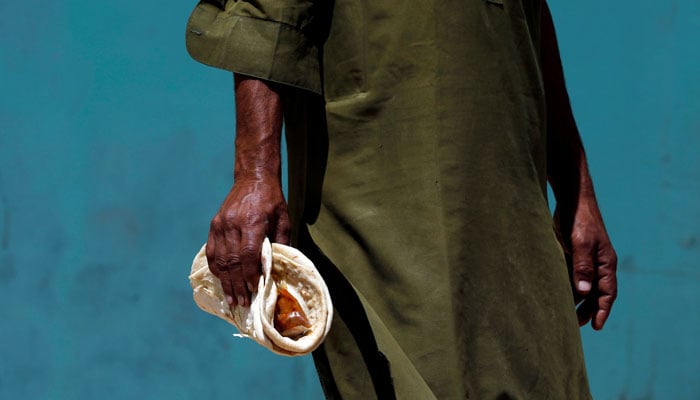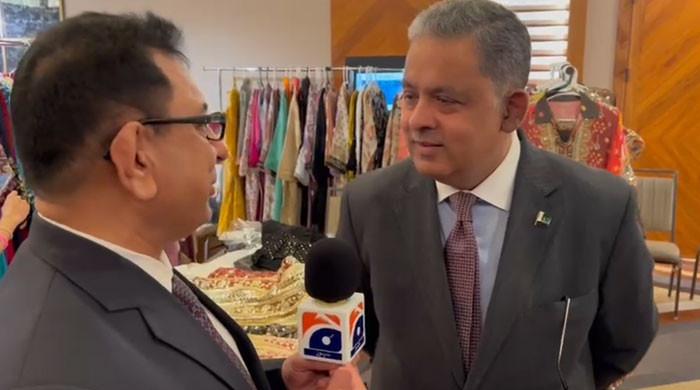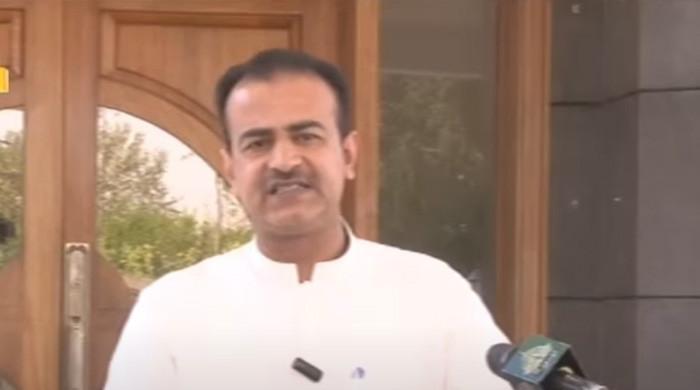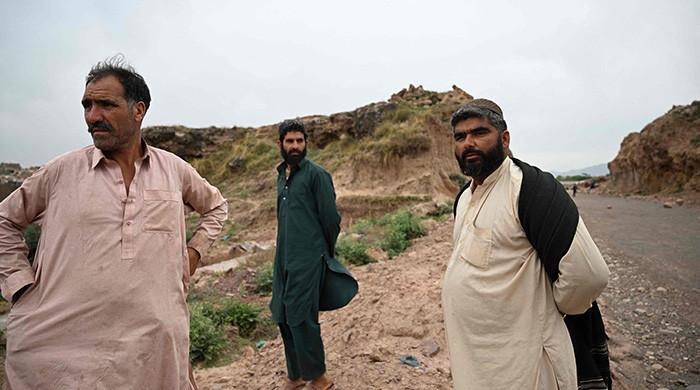PM Imran's greatest fears about impact of coronavirus epidemic on poor may turn true
A recent report by BBC focuses on how labourers and daily wage earners are going through difficult times due to the lockdown in India
March 30, 2020

Daily wage earners in India are bearing the brunt of the lockdown as economic activities come to a halt in the country, following the coronavirus outbreak.
A report by BBC published on Monday focuses on how labourers and daily wage earners were going through difficult times due to the lockdown in the country.
"I earn 600 rupees ($8; £6.50) every day and I have five people to feed. We will run out of food in a few days. I know the risk of coronavirus, but I can't see my children hungry,” Ramesh Kumar, a labourer in Noida, told BBC.
India has so far reported 500 cases of the virus with 10 deaths. It's neighbour, Pakistan has recorded 1,600 cases with 17 deaths.
The report further said that the lockdown, which will remain imposed in the country for three more weeks, will mean that many in the country will run out of food in the coming days.
Read also: Pakistan cannot afford to impose a total lockdown, says PM Imran
While the governments of Uttar Pradesh and Kerala have promised to pay cash to daily wage earners, the move will not be easy to implement. For one, there are logistical challenges.
According to the International Labour Organisation (ILO), almost 90% of the country’s workforce are working as security guards, cleaners, street vendors, garbage collectors, domestic help etc that comprise employment in the informal sector. Many do not even have bank accounts and are paid through cash daily. Many also are not given pensions, sick leaves paid leaves or benefit from any kind of insurance.
A nation of one billion people, India is also faced with the daunting task of keeping track of its population. Most workers are migrants, who travel to find work from one state to another.
Ex-chief minister Uttar Pradesh Akhilesh Yadav said the government needed to act “lightning-fast” as the situation was changing with each passing day. He advised the government to set up big community kitchens and deliver food to people who need it.
Read also: Government says rations will be delivered to needy at their doorstep
“Nobody in any government has faced them [challenges] before,” he said.
Kishan Lal, a rickshaw puller in Allahabad, said that he had not earned a penny in the last four days since the lockdown had been in place. He said that he needed to feed his family and hoped the government will pay him money. “I have no idea when and how [the government will pay],” he said.
"The shop shut down two days ago and I haven't been paid. I don't know when it will open. I am very scared. I have a family, how am I going to feed them?" asked Ali Hassan, a cleaner in an Allahbad shop.
Another small entrepreneur in India, a man who sold yoghurt drinks on a stall, said he was anticipating more business in the coming summer. Hence, he had hired two people to help him sell the drinks. However, the lockdown meant he did not make money. Disappointed at the crisis, he said: “hunger will kill many like me before the coronavirus”.
The lockdown has also sharply dented the country’s tourism industry. Tejpal Kashyap, a photographer, told BBC that business had been bad during the past couple of days. With train services suspended, Kashyap said he couldn’t even go back to his village in Uttar Pradesh as he was stuck in Delhi, where there was currently no work for him.
Meanwhile, in Pakistan, the number of coronavirus cases has witnessed an exponential rise in the past few weeks, however, Prime Minister Imran Khan refused to order a lockdown in the country. His reason being simple: more will die of hunger than the coronavirus.
In an interactive session with journalists, the prime minister said that if he imposed a lockdown across the country, people will run out of food and starve.
He said that had the situation in the country been similar to Italy and other European countries where governments had ordered complete lockdowns, he would have done the same.
PPP Chairman Bilawal Bhutto Zardari and PML-N President Shehbaz Sharif have both criticised PM Imran for not ordering a lockdown. However, the question remains: who will take care of the daily wage earners when economic activity comes to a complete standstill throughout the nation?
The premier had earlier explained that the western governments have the means to provide support but here in Pakistan, we do not have enough resources.
Although, the provincial governments, as well as the federal authorities, have announced relief packages for the poor and industries, the impacts of these measures have already been appearing.











